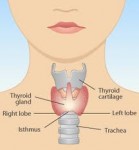 The number of prescription painkiller overdose deaths increased five fold among women between 1999 and 2010, according to a Vital Signs report released today by the Centers for Disease Control and Prevention. While men are more likely to die of a prescription painkiller overdose, since 1999 the percentage increase in deaths was greater among women (400 percent in women compared to 265 percent in men). Prescription painkiller overdoses killed nearly 48,000 women between 1999 and 2010.
The number of prescription painkiller overdose deaths increased five fold among women between 1999 and 2010, according to a Vital Signs report released today by the Centers for Disease Control and Prevention. While men are more likely to die of a prescription painkiller overdose, since 1999 the percentage increase in deaths was greater among women (400 percent in women compared to 265 percent in men). Prescription painkiller overdoses killed nearly 48,000 women between 1999 and 2010.
“Prescription painkiller deaths have skyrocketed in women (6,600 in 2010), four times as many as died from cocaine and heroin combined,” said CDC Director Tom Frieden, M.D., M.P.H. “Stopping this epidemic in women – and men – is everyone’s business. Doctors need to be cautious about prescribing and patients about using these drugs.”
The study includes emergency department visits and deaths related to drug misuse/abuse and overdose, as well as analyses specific to prescription painkillers. The key findings include:
- About 42 women die every day from a drug overdose.
- Since 2007, more women have died from drug overdoses than from motor vehicle crashes.
- Drug overdose suicide deaths accounted for 34 percent of all suicides among women compared with 8 percent among men in 2010.
- More than 940,000 women were seen in emergency departments for drug misuse or abuse in 2010.
These startling numbers also emphasize the need for more sex based research in drug development. Too often drugs are only tested in males, especially at the animal level, opening the door to more adverse side effects eventually reported by women. We already know that some drugs work differently in men and women and there is a move to provide separate male/female prescribing instructions that could alleviate some misuse!!!

 The World Health Organization (WHO) recently released a
The World Health Organization (WHO) recently released a  For such a little organ, the thyroid gland sure can cause a lot of trouble. This small, butterfly-shaped gland controls nearly all of your body’s metabolic processes by secreting different kinds of hormones. Almost
For such a little organ, the thyroid gland sure can cause a lot of trouble. This small, butterfly-shaped gland controls nearly all of your body’s metabolic processes by secreting different kinds of hormones. Almost  Do you have questions about menopause? Are you ever curious about hormone therapy treatments? You’re not alone! Every year over two million women in America alone enter into menopause, and most have questions. The Women’s Health Research Institute wants to provide answers with the creation of a new website:
Do you have questions about menopause? Are you ever curious about hormone therapy treatments? You’re not alone! Every year over two million women in America alone enter into menopause, and most have questions. The Women’s Health Research Institute wants to provide answers with the creation of a new website:  There’s a new “toy” in the surgical wing at the UC Irvine Medical Center that’s causing surgical oncologists to perform 56% less duplicate breast cancer surgeries. It’s called MarginProbe, and it detects whether surgeons have removed all of a woman’s breast cancer cells during surgery, reducing the necessity of a second operation. This sterile, handheld device sends electromagnetic signals to the bodily tissues surrounding a surgical incision, which are then transmitted and analyzed to determine whether any unhealthy tissue remains in the breast.
There’s a new “toy” in the surgical wing at the UC Irvine Medical Center that’s causing surgical oncologists to perform 56% less duplicate breast cancer surgeries. It’s called MarginProbe, and it detects whether surgeons have removed all of a woman’s breast cancer cells during surgery, reducing the necessity of a second operation. This sterile, handheld device sends electromagnetic signals to the bodily tissues surrounding a surgical incision, which are then transmitted and analyzed to determine whether any unhealthy tissue remains in the breast. The connection between what we eat and mortality rates come as no surprise, but does changing our diet really give us a better chance of survival? According to a study by JAMA International Medicine, there is a correlation between a vegetarian diet and a longer life. However, the study also showed a difference between men and women (25-older). The study took place in the US and Canada over a period of 6 years where the diets of 73,000 participants were observed. This community had even amounts of vegetarians and non-vegetarians. After the span of the 6 years there were a total of 2,570 deaths and the results then provided that participants with a vegetarian diet were 12% less likely to die. The study went in further to this particular statistic and found that the mortality rate was still higher for women despite the fact that they were vegetarian.
The connection between what we eat and mortality rates come as no surprise, but does changing our diet really give us a better chance of survival? According to a study by JAMA International Medicine, there is a correlation between a vegetarian diet and a longer life. However, the study also showed a difference between men and women (25-older). The study took place in the US and Canada over a period of 6 years where the diets of 73,000 participants were observed. This community had even amounts of vegetarians and non-vegetarians. After the span of the 6 years there were a total of 2,570 deaths and the results then provided that participants with a vegetarian diet were 12% less likely to die. The study went in further to this particular statistic and found that the mortality rate was still higher for women despite the fact that they were vegetarian. Many women don’t have all the facts when unprotected sex occurs. Emergency contraceptive methods represent evolving and scientifically viable options for many women, yet are not adequately marketed to the public. Emergency Contraceptive Pills (EPCs) offer women a fast and private over-the-counter option to use after unprotected sex. With the multitude of contraceptive agents on the market, EPCs would seemingly be added to the marketing of family planning initiatives. Yet, surprisingly, EPCs are not marketed effectively, and many women who may wish to consider EPCs as a last-resort option do not have sufficient access to this information.
Many women don’t have all the facts when unprotected sex occurs. Emergency contraceptive methods represent evolving and scientifically viable options for many women, yet are not adequately marketed to the public. Emergency Contraceptive Pills (EPCs) offer women a fast and private over-the-counter option to use after unprotected sex. With the multitude of contraceptive agents on the market, EPCs would seemingly be added to the marketing of family planning initiatives. Yet, surprisingly, EPCs are not marketed effectively, and many women who may wish to consider EPCs as a last-resort option do not have sufficient access to this information.
 Most people assume seasonal allergies are prevalent during the spring months, when pollen counts are high. While these types of allergies are a serious concern for many women that have them, women have unique challenges when it comes to allergies that men may not face.
Most people assume seasonal allergies are prevalent during the spring months, when pollen counts are high. While these types of allergies are a serious concern for many women that have them, women have unique challenges when it comes to allergies that men may not face. Surfacing research proves the Sub-Saharan African traditions of Female Genital Mutilation and Female Genital Cutting (FGM/FGC) lead to long-term health consequences. Such health problems are found to impact the delivery and health of newborns. Researchers and anthropologists from the Autonomus University of Barcelona collected data from 588 females in The Gambia. Data were carefully gathered through questionnaires and physical examinations of the female patients, and analyzed with 95% confidence intervals. The results showed that 75.6% of the women had undergone FGM or FGC, and these women had a significantly higher prevalence of health problems including dysmenorrhea, vulvar or vaginal pain, fibrosis, keloid, synechia, and sexual dysfunction. Furthermore, research showed these women were four times more likely to experience delivery complications such as perineal tear, obstructed labor, episiotomy, cesarean-necessitated delivery, and stillbirth.
Surfacing research proves the Sub-Saharan African traditions of Female Genital Mutilation and Female Genital Cutting (FGM/FGC) lead to long-term health consequences. Such health problems are found to impact the delivery and health of newborns. Researchers and anthropologists from the Autonomus University of Barcelona collected data from 588 females in The Gambia. Data were carefully gathered through questionnaires and physical examinations of the female patients, and analyzed with 95% confidence intervals. The results showed that 75.6% of the women had undergone FGM or FGC, and these women had a significantly higher prevalence of health problems including dysmenorrhea, vulvar or vaginal pain, fibrosis, keloid, synechia, and sexual dysfunction. Furthermore, research showed these women were four times more likely to experience delivery complications such as perineal tear, obstructed labor, episiotomy, cesarean-necessitated delivery, and stillbirth.